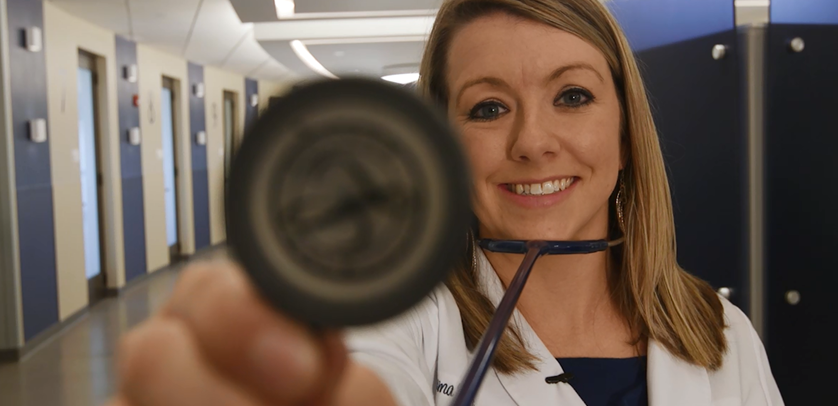High Blood Pressure

Each time your heart pumps, your blood pushes against your artery walls. Blood pressure is a measurement that monitors the force of your blood with each pump: as your heart contracts (systole), and as it relaxes (diastole).
Your blood pressure rises and falls over the course of the day based on several factors, including physical activity, stress and diet. But when it stays consistently raised, it can cause health problems, including stroke, heart disease and kidney failure.
Taking steps to control your blood pressure can help lower your risk of these conditions.
Why It’s Important to “Know Your Number”
Knowing your blood pressure level by checking it regularly can help you keep it in a healthy range. You can learn your blood pressure by having it checked at your doctor’s office, or you can check it at home using a validated blood pressure monitor, which you can buy at the pharmacy or online.
To prepare to have your blood pressure taken at the doctor’s office, you’ll want to make sure you haven’t been under excessive stress, or haven’t exercised, consumed caffeine or used tobacco in the past half hour. You should also rest for at least five minutes beforehand and sit with your legs uncrossed as your blood pressure is taken.
If you measure your blood pressure at home, you should also make sure to:
- Measure both in the morning and at night over the course of a week
- Note the time you take the measurement
- Take two or three readings per sitting
These tips will help you get a consistent reading you and your doctor can use to make health and treatment decisions.
Blood pressure readings are usually given as two numbers. For example, your provider may tell you that your blood pressure is 120/80 mmHg (the top number is your systolic blood pressure, and the bottom number is your diastolic blood pressure).
A normal blood pressure level is less than 120/80 mmHg.
What Causes High Blood Pressure?
Since patients with high blood pressure don’t usually experience any symptoms, it often isn’t caught unless you or your doctor is regularly measuring it.
High blood pressure usually develops over time and is caused by factors such as:
- An unhealthy diet, such as one high in saturated fat or salt
- Certain health conditions, such as diabetes and obesity
- Lack of physical activity
- Tobacco and alcohol use
Other risk factors for hypertension include a family history of the condition, being older than 65 and having a disease such as diabetes or kidney disease.
Risks of Having High Blood Pressure
High blood pressure can lead to several serious health problems, including damage to important organs like the heart, brain and kidneys.
Heart Risks
High blood pressure can damage your heart by causing your arteries to become less elastic, which decreases how much blood and oxygen flow to your heart. Decreased blood to the heart can also cause:
- Chest pain, or angina
- Heart attack
- Heart failure
Brain Risks
High blood pressure can also cause the arteries that supply blood and oxygen to your brain to either burst or form blockages, causing a stroke. Having high blood pressure in midlife is also linked to having poor cognitive function and dementia later in life.
Kidney Risks
Adults with high blood pressure have a higher risk of developing chronic kidney disease.
Preventing High Blood Pressure
There are ways you can prevent hypertension from developing, or, if you’ve been diagnosed with the condition, lower your blood pressure level on your own. These involve making lifestyle changes, such as:
- Following a diet that’s rich in potassium, calcium and magnesium, and low in sodium, saturated fat and sugar
- Getting more exercise
- Limiting alcohol use
- Maintaining a healthy weight
- Managing stress
- Quitting smoking
Treating High Blood Pressure
In some cases, medication is also needed to help control high blood pressure, in addition to making lifestyle changes. These medicines work in a variety of ways, including:
- Blocking nerve activity that can restrict blood vessels
- Causing your body to get rid of water, which also lowers your salt level
- Making the heartbeat with less force
- Relaxing your blood vessels
Your doctor may recommend one or more medicines to control your blood pressure. Talk to your doctor about which treatment options may be right for you.
High Blood Pressure Resources
Here, we offer several resources to help you manage your blood pressure, including:
- Our Prevent T2 program, which teaches you simple changes to lower your risk of developing diabetes while promoting healthy weight loss
- Smoking cessation programs that help you quit smoking when you’re ready
- Metabolic testing to help you determine your specific daily caloric needs
- Nutrition counseling from a registered dietitian that can help you achieve your nutrition, weight and health goals